Performing Arts

Theater in the United States
For over a hundred years, Jewish women have been involved in the American theater as writers, actors, directors, designers and producers. The vitality of the Yiddish theater, the splendor of Broadway, the rich tapestry of the regional theater, and everything in between, all owe a debt to the Jewish women who have given of their talents, their energy, their drive, and their dreams.
Mahinarangi Tocker
New Zealand singer-songwriter Mahinaarangi Tocker (1955-2008) was best known as a Maori musician, but her Jewish heritage was an essential component of her identity and her music.
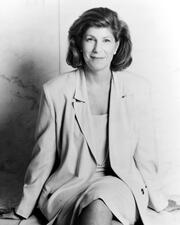
Nina Totenberg
Nina Totenberg has broken important stories on the United States Supreme Court during more than four decades of covering legal affairs for National Public Radio. She helped bring to public attention the previously hidden issue of sexual harassment during the controversial confirmation hearing of Justice Clarence Thomas and has received numerous accolades as a path-breaker in the male-dominated world of Washington journalism.
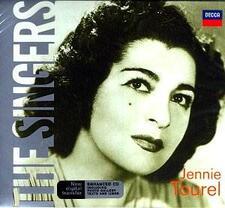
Jennie Tourel
Sarah Treem

Sophie Tucker
Vaudeville legend and Broadway star Sophie Tucker defied convention with her saucy comic banter and music. Tucker became famous internationally for her singing performances and delighted audiences throughout America and Europe with her rendition of “My Yiddishe Momme.” Tucker was proud of her Jewish identity and created the Sophie Tucker Foundation, which supported various actors’ guilds, hospitals, synagogues, and Israeli youth villages.

Rosalyn Tureck
Pianist Rosalyn Tureck toured the world as a consummate interpreter of the keyboard music of Johann Sebastian Bach. Tureck made her Carnegie Hall debut in 1935 before touring in Europe, South America, Israel, Turkey, South Africa, and Australia. In 1994 she founded the Oxford-based Tureck Bach Research Institute.

Lia Van Leer
A pioneer in the field of art film programming and film archiving in Israel, Lia van Leer was the founder of the Haifa Cinematheque, the Jerusalem Cinematheque, the Israel Film Archive, and the Jerusalem Film Festival. As a result of her work, film in Israel is seen as an expression of culture and art and is funded by government agencies.
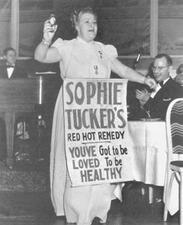
Vaudeville in the United States
Jewish women in vaudeville helped to cultivate a unique American Jewish identity. Headliners Sophie Tucker, Belle Baker, and Fanny Brice were prominent, as were performers such as Nan Halperin and Nora Bayes. Molly Picon was a star of Yiddish theater, and Sarah Bernhardt a star of the stage. The reign of Jewish female vaudevillians ended in the 1930s, but their voices continue to be heard.
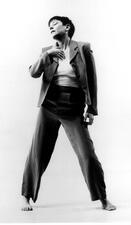
Victoria Marks
Victoria Marks (b. 1956) is an American dancer, choreographer, professor, and activist. Marks began dancing as a child and later expanded her career as the founder of Victoria Marks Performance Company and a professor at various conservatories around the world. She is also an advocate for mental health and accessibility, collaborating on films that investigate the effects of mental illness and founding the Dancing Disability Lab at UCLA in 2014.
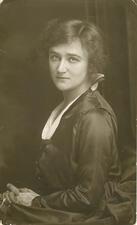
Salka Viertel
Salka Viertel was an influential actress, writer, and organizer of Jewish European immigrants in Hollywood. Viertel co-wrote screenplays for several Greta Garbo films. Her Hollywood salon welcomed émigrés such as Thomas and Heinrich Mann, Bertolt Brecht, Fred Zinnemann, Arnold Schoenberg, and Reinhardt.
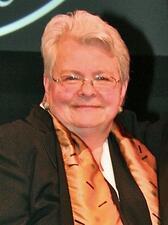
Paula Vogel
Margarethe Wallmann
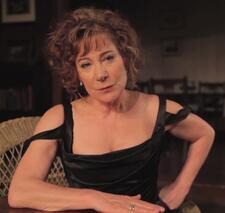
Zoe Wanamaker
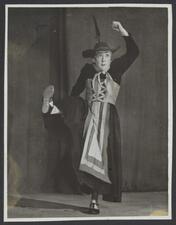
Cilli Wang
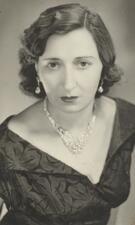
Dora Wasserman
Dora Wasserman created a place for Yiddish theater in Canada by founding a theater and adapting great works of Yiddish literature for the stage. After World War Two, Wasserman immigrated from the Soviet Union to Montreal, formed the Yiddish Drama Group, and produced plays and musicals. She was the first to demonstrate that a theater of diversity could survive and flourish in Canada, and she did so with an all-consuming selfless dedication to her art.
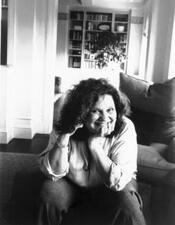
Wendy Wasserstein
In 1989, Wendy Wasserstein won the Pulitzer Prize for The Heidi Chronicles and was the first woman playwright to win a Tony Award. After graduating from the MFA program at the Yale School of Drama, in which she was the only woman, Wasserstein wrote countless dramas, three musicals, various comedy skits for television, and a series of essays published in the New Yorker, Esquire, and Harper’s Bazaar.
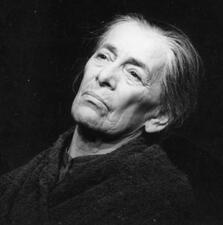
Helene Weigel as “Mother” in Bertolt Brecht's play The Mother. September 30, 1967.
Helene Weigel
Helene Weigel was an actress and director known for her maternal roles in Bertolt Brecht’s plays and her incredible kindness and generosity. Weigel married Brecht in 1922 and they fled Germany during the war, returning to East Germany after the war. Weigel was known for her strength, energy, diplomacy, and good humor as she managed an acting career and dealt with many challenges in her lifetime.
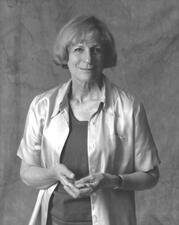
Ruth Weisberg
Edith Weiss-Mann
Edith Weiss-Mann’s distinguished career as a concert artist, music journalist, and teacher led to universal acknowledgment of her tremendous influence on new music in Germany during the interwar period. Along with other musicians, Weiss-Mann pioneered the revival of the harpsichord and baroque music in particular.
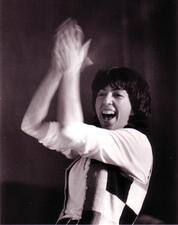
Naomi Weisstein

Rachel Weisz
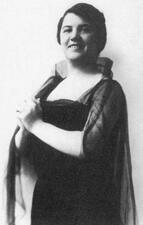
Maria Winetzkaja
Maria Winetzkaja was a rebellious and independent woman whose international opera career spanned twenty years. As a leading mezzo-soprano and excellent dramatic actor, Winetzkaja toured the world with several opera companies, taught voice at the Juilliard School, and raised two sons. Winetzkaja was a powerful force who desired equality for women throughout her life.

Shelley Winters
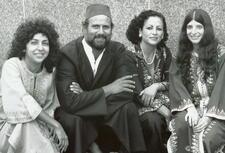
Women and Sephardic Music
Ladino or Judeo-Spanish Sephardic songs are primarily a women’s repertoire. The two main traditions are that of northern Morocco and the Eastern Mediterranean, primarily today’s Turkey, Greece, the Balkans.


